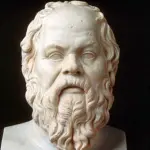Ludwig Wittgenstein mbti kişilik türü
Kişilik
"Ludwig Wittgenstein hangi kişilik türü? Ludwig Wittgenstein, MBTI, 5w4 - sx/sp - 514 'de INFJ kişilik türüdür, RLOEI, RLOEI, büyük 5, LSI' dır."
This quote from logician Rudolf Carnap gives the best possible portrait of Wittgenstein as an INFJ. If this is not definitive evidence, I don't know what is. "When I met Wittgenstein, I saw that Schlick's warnings were fully justified. But his behavior was not caused by any arrogance. In general, he was of a sympathetic temperament and very kind; but he was hypersensitive and easily irritated. Whatever he said was always interesting and stimulating and the way in which he expressed it was often fascinating. His point of view and his attitude toward people and problems, even theoretical problems, were much more similar to those of a creative artist than to those of a scientist; one might almost say, similar to those of a religious prophet or a seer. When he started to formulate his view on some specific problem, we often felt the internal struggle that occurred in him at that very moment, a struggle by which he tried to penetrate from darkness to light under an intense and painful strain, which was even visible on his most expressive face. When finally, sometimes after a prolonged arduous effort, his answers came forth, his statement stood before us like a newly created piece of art or a divine revelation. Not that he asserted his views dogmatically … But the impression he made on us was as if insight came to him as through divine inspiration, so that we could not help feeling that any sober rational comment of analysis of it would be a profanation."
Biyografi
Ludwig Josef Johann Wittgenstein (26 April 1889 – 29 April 1951) was an Austrian-British philosopher who worked primarily in logic, the philosophy of mathematics, the philosophy of mind, and the philosophy of language. From 1929 to 1947, Wittgenstein taught at the University of Cambridge. During his lifetime he published just one slim book, the 75-page Tractatus Logico-Philosophicus (1921), one article, one book review and a children's dictionary.
Kişilik correlate

Friedrich Nietzsche

Socrates

Arthur Schopenhauer

Karl Marx

Albert Camus

Immanuel Kant

Niccolò Machiavelli

Diogenes






